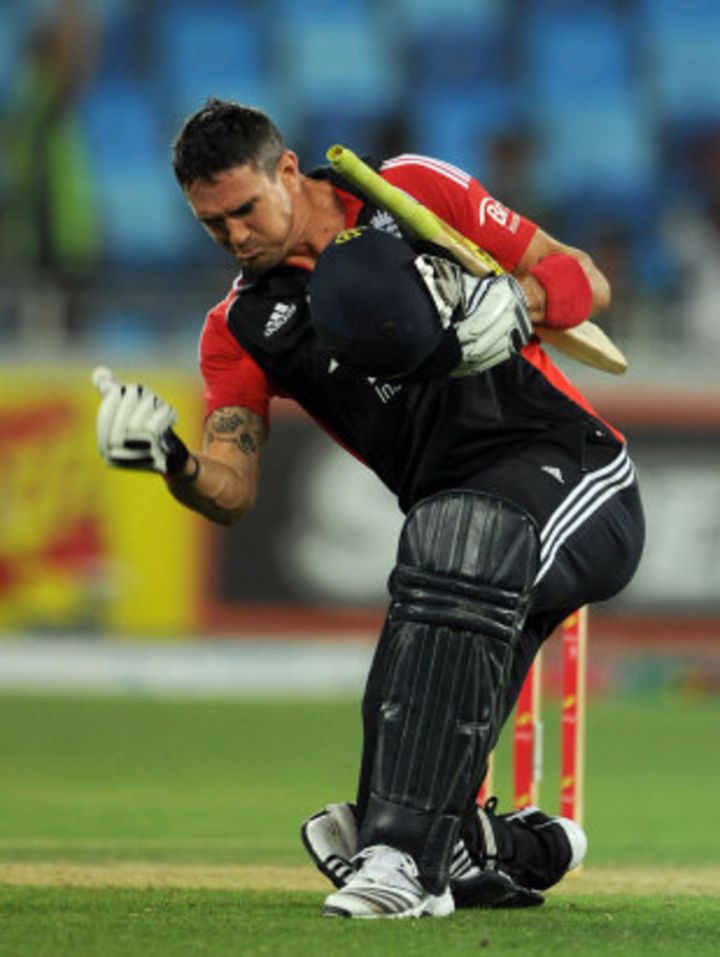Cricket's schedule is unsustainable
Like a certain international currency, it is under threat of collapsing unless administrators ease the strain

The head of the European Central Bank has just warned EU leaders that the euro currency union is unsustainable. I wonder what he'd make of international cricket.
The news that Kevin Pietersen will no longer play the limited-overs formats for England and will probably join the growing band of cricket mercenaries should be enough to prompt a change of thinking by the game's hierarchy. But I wouldn't advise anyone to hang by the neck while waiting for that change of heart.
Nevertheless, the administrators must realise that international cricket needs the limited number of top-class players to perform on that stage as well as ply their considerable skills for domestic T20 leagues. It's their unworkable schedule that in many cases forces players to make harsh choices.
Pietersen's preferred option was to play two versions of the game for England - Tests and T20s. However, the ECB is adamant players must be prepared to commit to both short forms of the game or else play neither. I've long held the view that something has to give if the game of cricket is to survive as a global sport and that the most likely casualty will be the 50-over game.
At the time the IPL was mooted, in order to combat the rebel ICL, I felt the timing was right to have a round table meeting involving all the game's stakeholders, from players and administrators to television executives and sponsors, to hammer out a workable blueprint for the future so that all versions of the game could progress cohesively. The foresight and unity of purpose necessary were lacking and that golden opportunity was missed. Soon the administrators will have no choice but to accept the second-best option, of being forced into making changes. The game seems destined to experience an occasional eruption resulting in a power struggle between players and administrators.
There was the occasional 19th-century battle of wills over bowling actions, but the first major stoush occurred in the early 20th century. Up until then, certainly in Australia, the players had largely controlled the purse strings. The signs were ominous in 1909 when the Imperial Cricket Conference was formed. Then in 1911 there was a player revolt when Australia's "Big Six" refused to tour England in a futile attempt to retain the control they had over the split of the takings. When the Australian players lost that battle, the administrators gained the upper hand and, consequently, a strong hold on the purse strings. This rapidly became a vice-like grip until the World Series Cricket split in 1977, when the administrators' stranglehold on the finances was finally broken.
In the aftermath of that revolution the players received better pay and conditions improved. Nevertheless the administrators retained control over the players, because representing your country was still a cricketer's best way to fame and a moderate fortune.
That balance changed dramatically with the advent of the IPL. Unwittingly the administrators ceded firm control to the players in devising the IPL, and once the inaugural auction was held the cricketers had more choice. Representing your country became only one of the options, and in many cases it was far from the most lucrative one.
With T20 leagues popping up like daisies in spring, not only are the players spoilt for choice but the now seriously overloaded international schedule wouldn't be workable even if the administrators decided to adopt the Martian year to avail themselves of an extra couple of hundred days. The current cricket schedule is on par with the euro: it's simply unsustainable.
If Pietersen does embark on a mercenary's career and it leads to further erosion of administrative power, it will underline the shift: the European Central Bank endures the acronym ECB, the same as the England board, which until recently laboured under the misapprehension that it controlled Pietersen.
Former Australia captain Ian Chappell is now a cricket commentator and columnist
Read in App
Elevate your reading experience on ESPNcricinfo App.